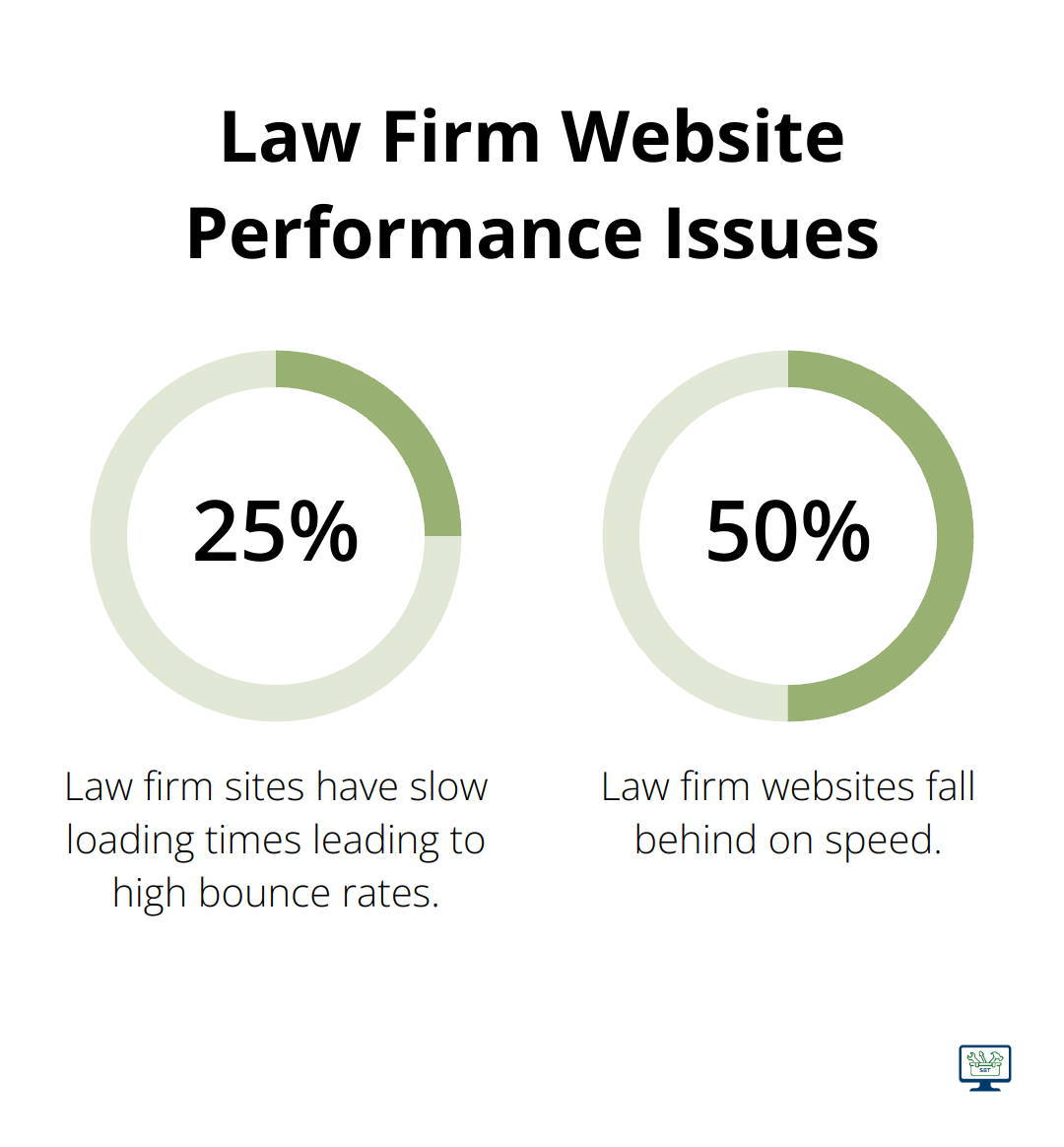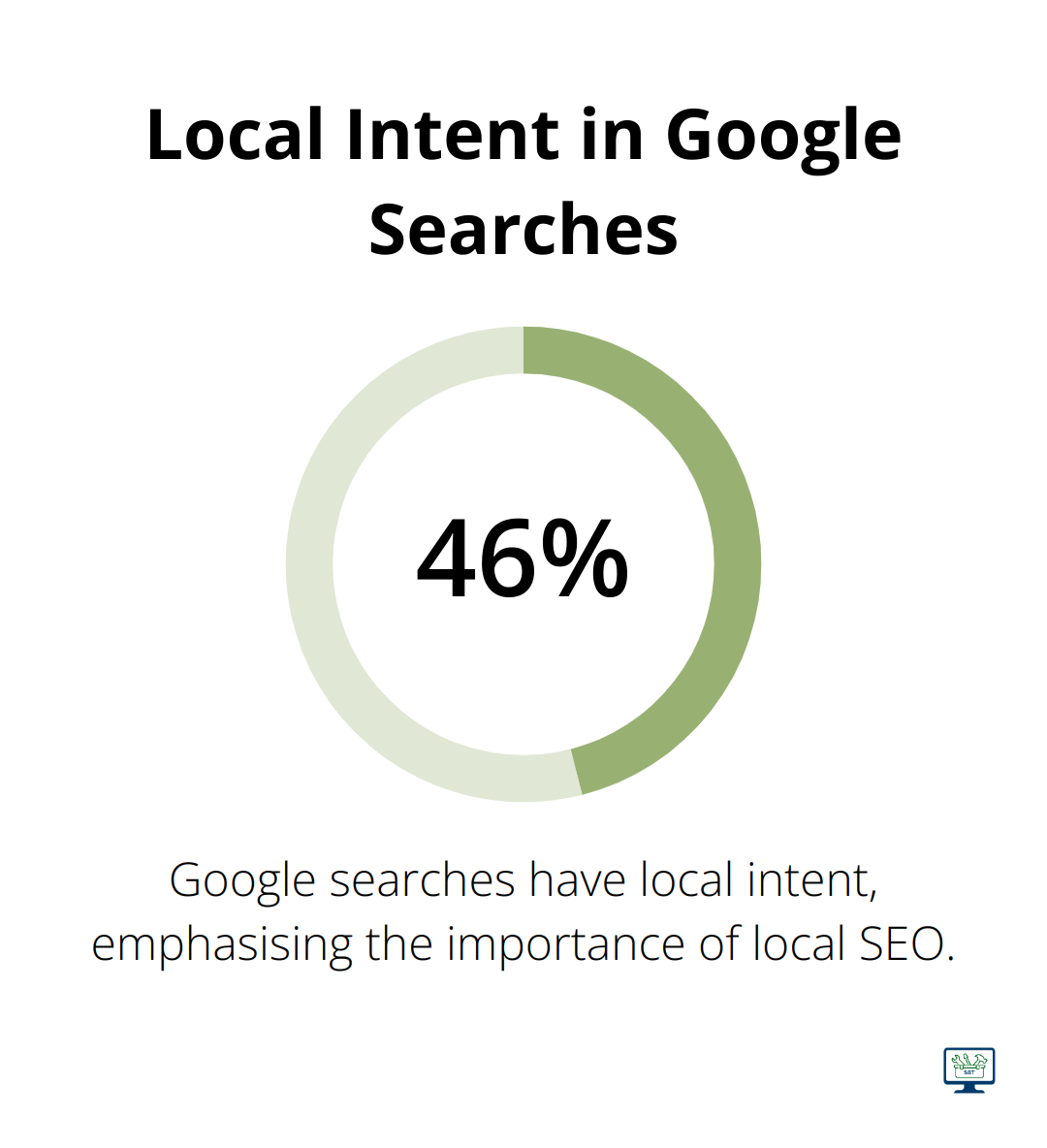SEO for Law Firms: Attract More Clients Online

Published On Jul 03,2025
At WebsiteStrategies, we understand the unique challenges law firms face in the digital landscape. SEO for law firms is a powerful tool to attract more clients and stand out in a competitive market.
In this post, we’ll explore effective strategies to boost your law firm’s online visibility and credibility. From optimising your website to leveraging local SEO tactics, we’ll cover actionable steps to help your practice thrive online.
How to Optimise Your Law Firm’s Website
Effective website optimisation forms the foundation of successful SEO for law firms. A well-optimised site can significantly increase client inquiries and case acquisitions.
Master Legal Keyword Research
Identify the terms potential clients use when searching for legal services. Tools like Google’s Keyword Planner and SEMrush can uncover valuable insights. Focus on long-tail keywords specific to your practice areas (e.g., “personal injury lawyer in [your city]” or “divorce attorney for high-net-worth individuals”).
Mastering keyword research is crucial for SEO success. This fact underscores the importance of targeting niche, specific terms relevant to your law firm’s specialties.
Craft Compelling Legal Content
After you identify your target keywords, create in-depth, authoritative content around them. Each practice area should have its own dedicated page with at least 1,500 words of informative content. A study by Backlinko found that the average Google first page result contains 1,447 words.
Include case studies, FAQs, and clear explanations of legal processes. This approach not only helps with SEO but also builds trust with potential clients. Update your content regularly – Google favours fresh, relevant information.
Enhance Site Structure and Navigation
A well-structured website helps both users and search engines navigate your content efficiently. Implement a clear hierarchy with your homepage at the top, followed by main category pages (practice areas), and then specific service pages.
Use internal linking to connect related content. This strategy helps distribute page authority throughout your site and keeps visitors engaged. A study by Moz found that pages with a higher number of internal links tend to rank better in search results.
Optimise Technical Elements
Focus on your meta titles and descriptions. Include your target keywords and provide a clear, compelling summary of each page’s content. Try to create titles between 50-60 characters and descriptions between 150-160 characters for optimal display in search results.
Ensure your website is mobile-friendly and loads quickly. According to Better Call Spencer, nearly 25% of law firm sites have slow loading times that lead to high bounce rates, and almost half of law firm websites fall behind on speed. Use Google’s PageSpeed Insights to identify and fix any speed issues.

These strategies will create a solid foundation for your law firm’s online presence. SEO requires ongoing effort and adaptation. Monitor your rankings regularly and adjust your strategy as needed to maintain a competitive edge in the legal market.
As we move forward, let’s explore how content marketing can further enhance your law firm’s authority and trust online.
How Content Marketing Builds Trust for Law Firms
Content marketing stands as a powerful tool for law firms to establish authority and build trust with potential clients. The strategies outlined below have proven effective in transforming a law firm’s online presence.
Create an Authoritative Legal Blog
A legal blog serves as an excellent platform to showcase expertise and provide value to potential clients. According to recent statistics, 52% of law firms have blogs.

Address common legal questions and concerns in your practice areas. A personal injury lawyer might write about “5 Steps to Take After a Car Accident” or “Understanding Comparative Negligence in Your State.” Use real-world experience to provide unique insights that set you apart from competitors.
Consistent updates matter. For large firms, one to two blog posts per week is recommended, while small to mid-sized firms should aim for one to two blog posts per month.
Offer Valuable Resources to Potential Clients
Downloadable resources like legal guides and checklists serve as powerful lead magnets for law firms. These assets demonstrate expertise while providing tangible value to potential clients.
A family law practice could offer a “Divorce Checklist” or a “Guide to Child Custody Laws in [Your State].” Make these resources easily accessible on your website in exchange for an email address, allowing you to nurture leads over time.
The Content Marketing Institute reports that 65% of B2B marketers use educational content as their top marketing tactic. This approach works equally well for law firms looking to engage potential clients.
Use Video Content to Boost Engagement
Video content has become increasingly important for law firms looking to connect with potential clients. An Animoto survey found that 88% of marketers express satisfaction with the ROI of their video marketing efforts on social media.
Produce short, informative videos explaining common legal concepts or addressing frequently asked questions. Client testimonials in video format can be particularly powerful, as they put a human face on your firm’s success stories.
Start a YouTube channel for your law firm. Regular video content posts can improve your visibility in both YouTube and Google search results (YouTube ranks as the second-largest search engine after Google).
These content marketing strategies can significantly enhance a law firm’s online authority and build trust with potential clients. The key lies in consistently providing valuable, relevant content that addresses your target audience’s needs and concerns.
As we move forward, we’ll explore how local SEO strategies can further amplify your law firm’s online presence and attract more clients in your specific geographic area.
How to Dominate Local Search Results
Optimise Your Google Business Profile
Your Google Business Profile (GBP) forms the foundation of local SEO. Claim and verify your profile, then fill it with accurate and comprehensive information. Include your firm’s name, address, phone number, website URL, business hours, and high-quality photos of your office and team.
Select relevant categories for your practice areas and use the business description field to highlight your unique selling points and primary keywords.
Leverage Client Reviews
Online reviews influence potential clients and impact your local search rankings. Ask satisfied clients to leave reviews on your GBP and other platforms like Avvo or Yelp.
This article will teach you about the commonest local search ranking factors. Create a system to request reviews from clients after successful case resolutions. Respond promptly and professionally to all reviews to show your commitment to client satisfaction.
Create Geo-Targeted Content
Develop dedicated landing pages for each location if your firm has multiple offices. These pages should contain location-specific content, such as local landmarks, court information, and area-specific legal insights. This strategy helps you rank for location-based searches and provides valuable information to potential clients in each area.
46% of all Google searches have local intent (according to Search Engine Land). Geo-targeted content positions your firm to capture this significant portion of search traffic.

Build a Strong Local Citation Profile
Local citations are mentions of your law firm’s name, address, and phone number (NAP) on other websites. Maintain consistency in your NAP information across the web for local SEO success.
List your firm in legal directories (e.g., Avvo, FindLaw, Justia) and general business directories (such as Yellow Pages and Yelp). 90% of SEO experts believe accurate citations are important or very important for local search rankings (as reported by BrightLocal).
Conduct regular audits of your citations to ensure accuracy and consistency. Tools like Moz Local or BrightLocal can streamline this process, making it easier to manage your online presence across multiple platforms.
By implementing these strategies, you can improve your visibility in location-based searches and dominate local search results for your law firm.
Final Thoughts
SEO for law firms empowers legal practices to attract more clients and establish a robust online presence. Optimising websites, creating valuable content, and implementing local SEO tactics significantly improve visibility in search results. Law firms that consistently apply these techniques position themselves to attract more leads, build trust, and grow their practice in the digital age.
SEO requires ongoing effort and adaptation to maintain a competitive edge. Law firms should regularly audit their websites, create fresh content, and monitor rankings to ensure their SEO strategy remains effective. Professional assistance often yields better results, especially in competitive markets.
WebsiteStrategies specialises in helping law firms develop tailored SEO strategies that drive sustainable online growth. Our comprehensive approach includes technical audits, content optimisation, and local SEO tactics (designed to boost your firm’s visibility and authority). Investing in SEO for law firms is a long-term strategy that can yield significant returns.
